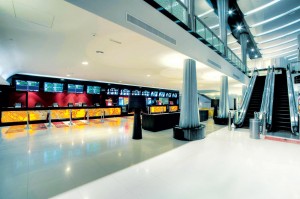Residents of Dubai need to reconsider how to use energy
Do you think that it is hot in UAE? Well, it is not so much hotter than in Europe. Here we are not talking about harsh winter, when temperatures in urban Dubai can drop to an icy 11˚C – but about summer, when it’s not uncommon for people to find themselves shivering – honestly, shivering – in public buildings, cinemas and shopping malls. Visitors often need to put a jacket on in order to enter a building in Dubai. Pashmina shawls are selling faster than digital cameras among tourists. Even, believe it or not, in cinemas, you can pre-order a blanket to go with your movie ticket. You don’t need that in Europe.
 This strange fact was also noticed by the British economist Tia Kansara. She has spent the last three years exploring the inside temperature of buildings in Abu Dhabi for her doctoral thesis. Tia measured indoor temperatures ranging from 17˚C to 31˚C, and says that 80 per cent of the people whom she interviewed thought that the air-conditioning in their building was too cold.
This strange fact was also noticed by the British economist Tia Kansara. She has spent the last three years exploring the inside temperature of buildings in Abu Dhabi for her doctoral thesis. Tia measured indoor temperatures ranging from 17˚C to 31˚C, and says that 80 per cent of the people whom she interviewed thought that the air-conditioning in their building was too cold.
So, what is the reason for this extra cooling tendency? Keeping in mind that electricity is an expensive commodity in Dubai, maybe companies want to show off that they can afford to chill their air to arctic levels. Or, maybe, they just want to provide guests with adequate respite from the heat. Anyway, the residents of Dubai have to reconsider how they use energy since the country is now the second highest per capita consumer of energy in the world (and 70 per cent of that is said to be used by air-conditioning).
The Dubai Electricity and Water Authority (DEWA) is trying to handle this problem. It announced in March its aim to decrease energy consumption in Dubai by 30 per cent and to increase general awareness of the importance of conserving energy. To achieve this, DEWA asks homes and businesses to increase the temperature of their air-conditioners to at least between 24 and 25.5˚C (78˚F), which is accepted to be the most energy-efficient temperature. Energy consumption is raised by four per cent for each degree centigrade that the temperature drops below 25.5˚C.
Actually, DEWA says that if all of the residents in Dubai turned up their air-conditioning to 24˚C, the saved energy could supply power to 11,000 apartments and to have a great impact on greenhouse gas emissions. Still, even though Dubai Municipality requires shopping malls, and shops within them, to maintain a temperature between 22.5°C and 25.5°C, a survey indicated that certain shops were still chilling the air to a chilly 17.5°C.
Perhaps, the chilling summer trend is just part of a local campaign to make everyone cover up and to follow a dress code or a welcoming gesture aimed at making Europeans fee more like at home.






















![The Square at Nad Al Sheba Gardens Now Open hope tax season treated you well! Just checking in—ready to refocus on growing your business? I remember how we discussed scaling your [specific aspect of their business, e.g., online presence] but paused due to time constraints. We now offer a streamlined 6-month plan that delivers real results without adding to your workload. Let me know if you'd like to chat—I’d love to help you pick up where we left off!](https://www.dubaichronicle.com/wp-content/uploads/2024/11/The-Square-5-218x150.jpg)









